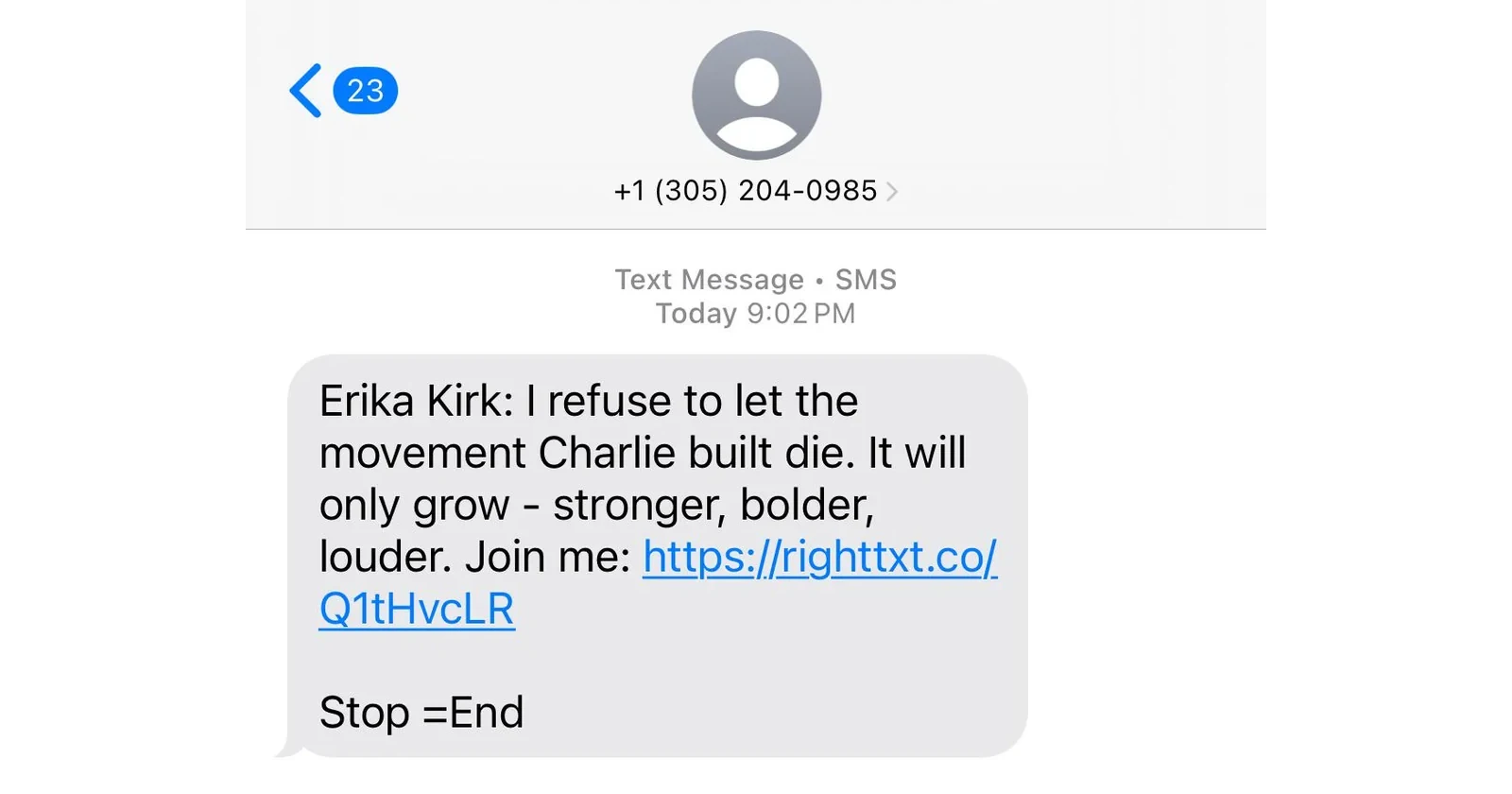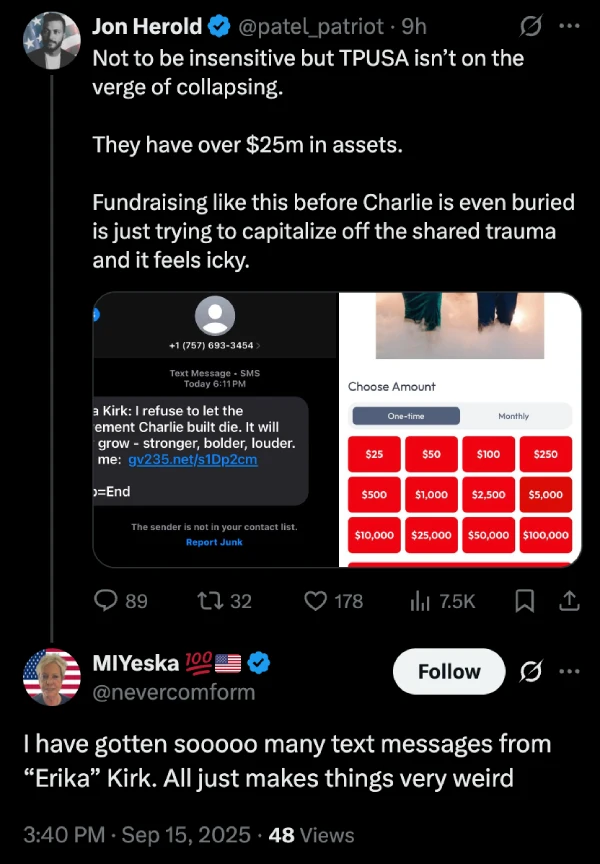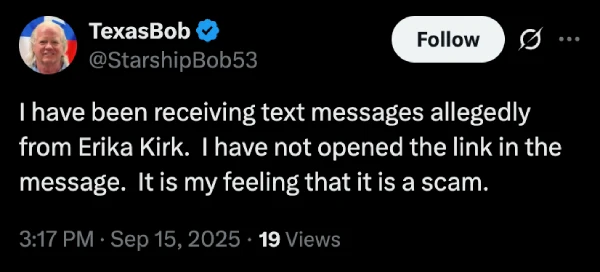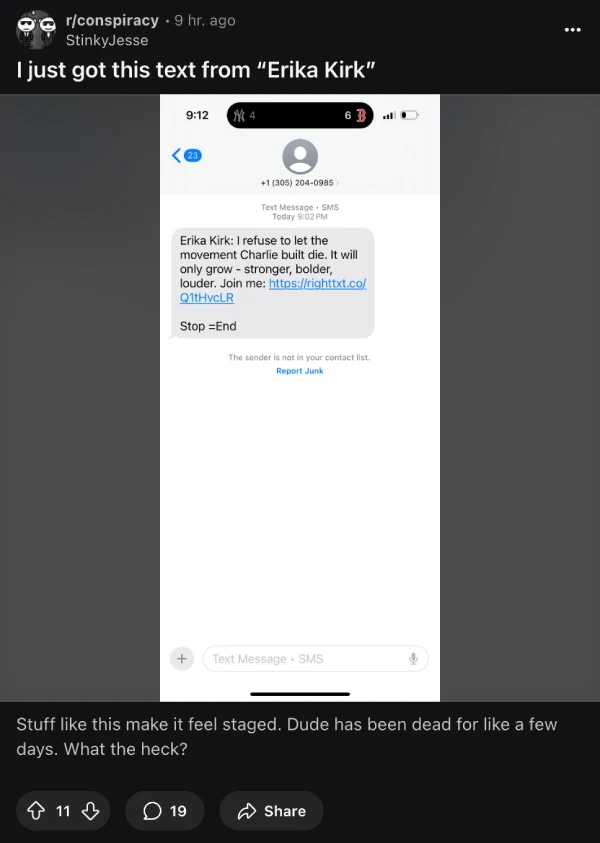Text messages claiming to be from “Erika Kirk” have been flooding phones across the country, and people are rightfully suspicious. These messages aren’t legitimate communications but rather opportunistic scams preying on the recent tragic event.
Multiple users on social media platforms have reported receiving these suspicious texts. One X user wrote, “I have gotten sooooo many text messages from ‘Erika’ Kirk. All just makes things very weird.”
Another person shared their experience: “I have been receiving text messages allegedly from Erika Kirk. I have not opened the link in the message. It is my feeling that it is a scam.”
The messages typically include emotional appeals and links that recipients should absolutely avoid clicking. Reddit users have been particularly vocal about these scams, with one person posting a screenshot of the fraudulent message they received. Comments on the post confirm that others have experienced similar attempts, with many users receiving multiple versions of the same scam with different shortened links.
Scammers are exploiting fresh tragedy to trick people into clicking malicious links or potentially donating money to fake causes. As one Reddit commenter pointed out, “It’s the classic scammers trying to rip you off of your hard earned cash by exploiting a fresh tragedy card.”
The telltale signs of these fraudulent messages include poor grammar, suspicious shortened links, and urgent emotional language designed to bypass your better judgment.
If you want to support any legitimate cause or organization, visit their official website directly by typing the URL into your browser. Don’t trust links sent via text message, even if they appear to come from recognizable names or organizations.
This isn’t the first time scammers have targeted people through text messages and emails. We’ve recently covered similar fraudulent schemes, including Wells Fargo call scams that targeted banking customers just last week. Other recent scam attempts we’ve reported on include PayPal email phishing, YouTube CEO impersonation scams, and fake X/Twitter content issue emails. Not all messages are scams though – we also clarified that T-Mobile self-service access texts are legitimate when users questioned their authenticity.
If you receive any of these messages, report them as spam to your carrier and delete them immediately. Don’t engage, don’t click, and definitely don’t provide any personal or financial information. Your skepticism could save you from becoming another victim of these shameless opportunists.
TechIssuesToday primarily focuses on publishing 'breaking' or 'exclusive' tech news. This means, we are usually the first news website on the whole Internet to highlight the topics we cover daily. So far, our stories have been picked up by many mainstream technology publications like The Verge, Macrumors, Forbes, etc. To know more, head here.





